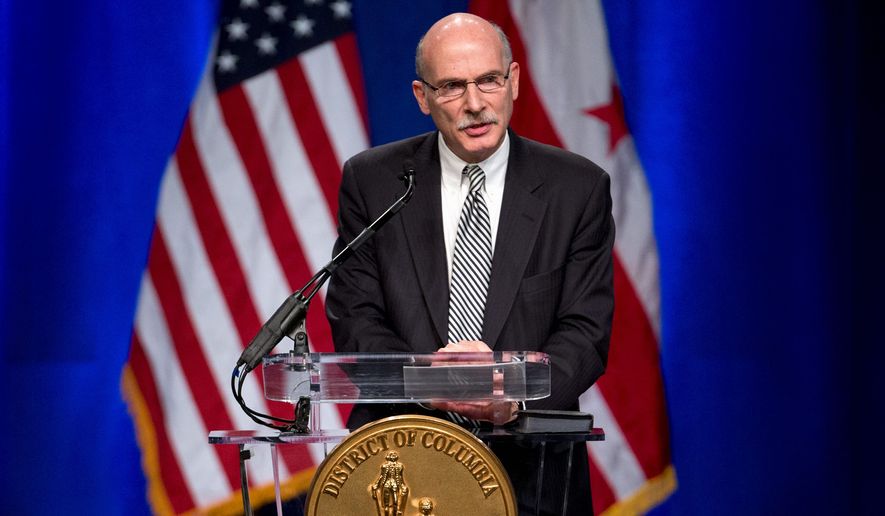A D.C. law banning businesses from discriminating against workers based on their opinions or use of birth control or abortion took effect over the weekend, despite attempts by congressional Republicans to block the measure.
Even with the law’s enactment, the D.C. Council plans to move forward with a clarification to emphasize that the law does not require employers to provide insurance coverage for reproductive health care options for which they have moral or religious objections.
D.C. Council Chairman Phil Mendelson said Monday the council will likely include language to permanently amend the law in upcoming budget legislation. He believes the council will be able “to move more quickly” to enact the clarification than if it were introduced as separate legislation.
The council is set to vote on the budget on May 27.
Temporary legislation is currently in effect that clarifies that the original law “shall not be construed to require an employer to provide insurance coverage related to a reproductive health decision.” However, it is set to expire in June.
D.C. lawmakers enacted the Reproductive Health Non-Discrimination Amendment Act in December to extend protections to workers by banning employers from discriminating against employees based on their personal decisions or opinions regarding reproductive health care. Without the law, officials had cited the possibility of employers being able to fire or demote employees for using birth control or having a child out of wedlock.
But critics, including conservative activist groups, argued that the law would illegally require organizations to provide insurance coverage for abortions and other reproductive health care procedures regardless of whether they violate the organizations’ religious beliefs.
The criticism prompted congressional Republicans to introduce a “disapproval resolution” to block the D.C. law from taking effect.
The GOP-led House voted Thursday to strike down the law. The vote is the first time in 24 years that members of Congress have used the measure to attempt to block a D.C. law from taking effect. It was merely symbolic: The Senate did not vote on the resolution, and the White House threatened to veto it.
Congress can vet local laws; however, both chambers must pass disapproval resolutions and the president must sign them into law.
• Andrea Noble can be reached at anoble@washingtontimes.com.




Please read our comment policy before commenting.